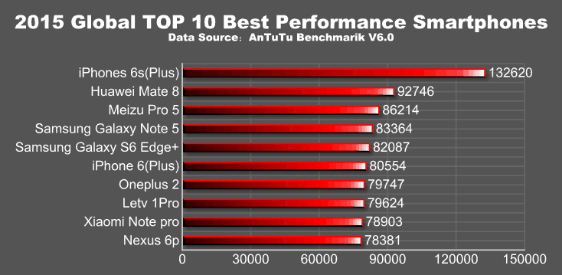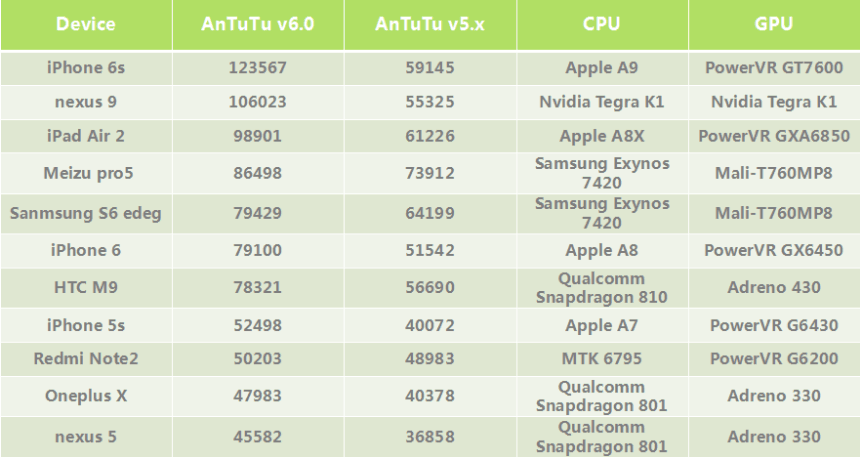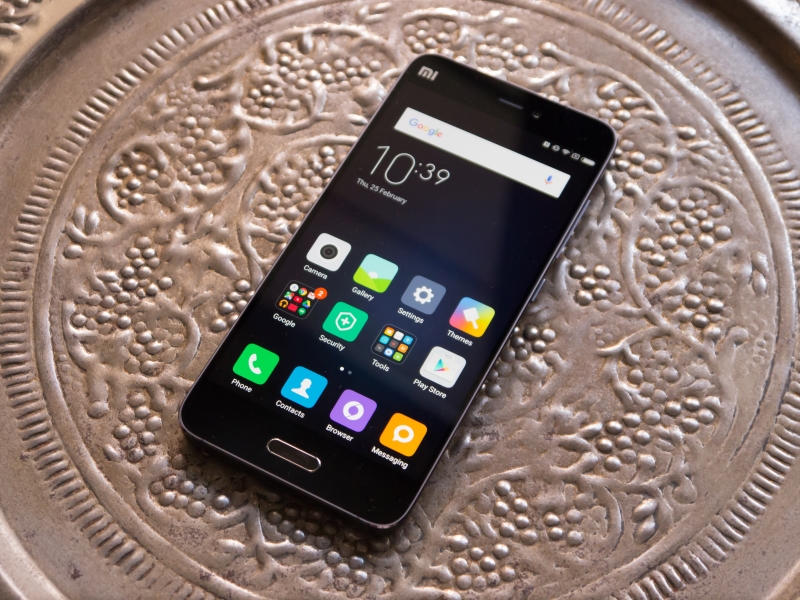@NVIDIATI said:
@musicalmac said:
@NVIDIATI: So you think it's flawed, and this is why:
3. New CPU Testing Added
The employment of multi-core CPU caused the incompetent of actual using experience and hardware limiting performance. In view of this situation, Antutu V6.0 adjusts CPU testing items and adds several new one, based on practical use with more pratical meaning. Antutu found that in most cases, only one core is doing work and many applications are poorly supported by multip-core.We increase the proportion of single core test significantly. All these will make the testing results be more realistic.
Sketchy translation aside, their methodology and reasoning seems logical.
That reasoning is flawed, which brings me back to my previous Anandtech reference:
While for Apple it can be argued that we're dealing with a very different operating system and it is likely iOS applications are less threaded than their Android counter-parts.
In the end what we should take away from this analysis is that Android devices can make much better use of multi-threading than initially expected. There's very solid evidence that not only are 4.4 big.LITTLE designs validated, but we also find practical benefits of using 8-core "little" designs over similar single-cluster 4-core SoCs.
Right, you posted that before. It's obvious that developers aren't going to make apps that utilize 8 cores for iOS when Apple favors using just two. I'm not sure why that even needs to be said.
As far as all those cores go, it doesn't seem to help in real-world situations. While the linked test isn't entirely scientific, it does display a much better showing for Apple's iPhone. The iPhone came out way ahead of the 2nd place phones with 6 fewer cores and half the RAM.
Your quote from Anand says that those extra cores are valid designs, better than similar single-cluster 4-core designs. But it really doesn't mean anything in the context of this conversation, because they're not as well designed as the A9 ("On the SoC side, it’s pretty safe to say that the A9 SoC is the best SoC in any phone today." Anand). In fact, using Anand quotes to downplay the strength of Apple's A9 is downright foolish. Let's go back to the iPhone 6s/+ review:
On the SoC side, it’s pretty safe to say that the A9 SoC is the best SoC in any phone today. We can talk about the TSMC and Samsung controversy, but at the end of the day regardless of which one you end up with the performance is going to be far and away better than anything else we’ve seen thus far. There are a lot of reasons for this, but at the end of the all that really matters is that the phone delivers the best user experience in areas where GPU or CPU performance is a gating factor. Again, I keep coming back to web browsing but due to the nature of wasteful yet necessary abstraction that occurs in websites and web applications it’s incredibly important that a high-end phone starts to challenge 2-in-1 and passively-cooled laptops in burst performance for a good user experience.
While CPU and strong browser optimization is critical for good web browsing performance, GPU is the other half of the equation to this SoC, even if it isn’t necessarily used to the fullest extent. The reality is that a high end phone is going to be used for gaming by a lot of people, and at the high-end gaming performance really needs to be impressive. The iPhone 6s’ are going to do well at this. GFXBench isn’t the same thing as an actual game, but the fact that the iPhone 6s and 6s Plus are basically pegging T-Rex at the maximum possible frame rate for most of a 3-4 hour infinite run of this intense benchmark basically means that gaming on the iPhone is going to be the best possible experience due to its incredibly high unthrottled GPU performance and the length of time that it’s able to sustain that unthrottled GPU performance. No other SoC I've tested this year can sustain this level of performance for this level of time.
A speedtest that chooses not to reward extra cores makes sense to me.
EDIT: I chose to highlight a couple key points in Anand's review of the iPhone 6s/+. Both quotes point to best-in-class operation, backed up by Antutu's tests, as well as the end-user testing as seen in the TechRadar video.




Log in to comment